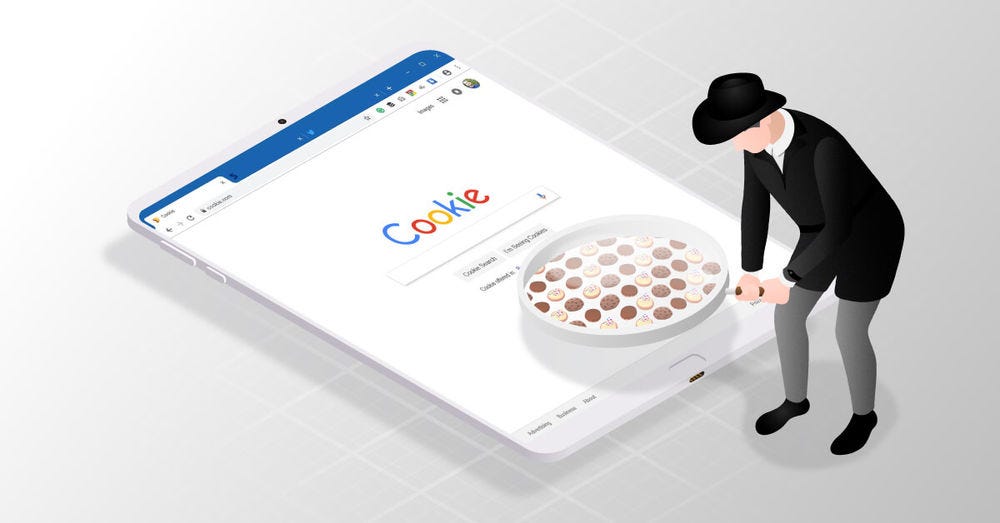The Impact of Third-Party Cookies Phase-Out on Digital Marketing

The digital marketing landscape is on the brink of a monumental transformation, one that has marketers, advertisers, and tech giants alike closely watching its every move. At the heart of this transformation lies the phase-out of third-party cookies, a development that has sparked significant controversy and raised important questions about the future of digital marketing. In this article, we will delve into the world of third-party cookies, their role in digital marketing, and the implications of their impending extinction.
Understanding Third-Party Cookies
To comprehend the significance of their phase-out, let’s begin by defining what third-party cookies are and how they have traditionally functioned in the digital marketing ecosystem. Third-party cookies are small text files placed on a user’s browser by a domain other than the one they are currently visiting. These cookies have long served as the backbone of digital marketing, allowing advertisers to track user behavior across various websites and collect data for targeted advertising.
Privacy Concerns and Regulatory Pressure
However, the era of unbridled data collection through third-party cookies has come under scrutiny due to growing concerns about user privacy and data protection. Regulations like the General Data Protection Regulation (GDPR) and the California Consumer Privacy Act (CCPA) have exerted immense pressure on companies to reevaluate their data practices and prioritize user consent.
Google’s Announcement
The seismic shift in the digital marketing landscape gained further momentum with Google’s announcement that it plans to phase out third-party cookies in its Chrome browser by 2023. Google, being a dominant player in the browser market, has the potential to reshape the entire digital marketing ecosystem. This decision is primarily motivated by the need to enhance user privacy and address the increasing demands for more stringent data protection measures.
First-Party Data and Consent-Based Marketing
In a post-third-party cookie world, the emphasis will shift towards first-party data, which is data collected directly from users with their consent. Brands will need to adopt consent-based marketing strategies, focusing on transparent data collection practices and giving users more control over their data.
Shift Towards Contextual Targeting
With the limitations imposed by the absence of third-party cookies, there is a growing trend towards contextual targeting. Brands will increasingly rely on the context of the content a user is engaging with to deliver relevant ads. This approach seeks to maintain effective ad targeting without relying on individual user data.
The Role of Data Management Platforms (DMPs) and Customer Data Platforms (CDPs)
Data Management Platforms (DMPs) and Customer Data Platforms (CDPs) will play a pivotal role in helping organizations adapt to this changing landscape. These platforms enable the collection, unification, and activation of customer data, facilitating more personalized and effective marketing efforts.
Investing in Customer Relationship Building
Building stronger customer relationships will become paramount. Customer Relationship Management (CRM) strategies will take center stage as brands seek to nurture and retain their customer base in a world without third-party cookies.
Collaboration and Industry Standards
To address the challenges posed by the third-party cookies phase-out, collaboration among industry stakeholders is crucial. Initiatives like the World Wide Web Consortium’s (W3C) Privacy Sandbox and Unified ID 2.0 aim to establish new standards and solutions for the digital marketing ecosystem.
Measurement and Attribution Challenges
One of the significant challenges will be measuring the effectiveness of digital marketing campaigns without third-party cookies. Alternative measurement methods and attribution models will need to be explored and adopted.
Educating Marketing Teams and Advertisers
Lastly, continuous education and upskilling of marketing professionals are imperative in this evolving landscape. Staying updated on emerging technologies, strategies, and ethical data practices will be essential for success.
The Way Forward
The phase-out of third-party cookies marks a pivotal moment in the history of digital marketing. It necessitates adaptability, innovation, and a commitment to ethical data practices. The future of digital marketing lies in the hands of those who can navigate this evolving terrain with agility and integrity. By embracing the changes and focusing on building trust with users, marketers can continue to thrive in the cookieless world that lies ahead.

